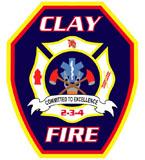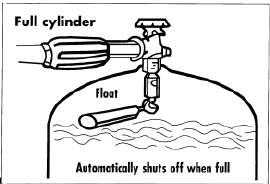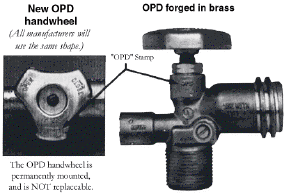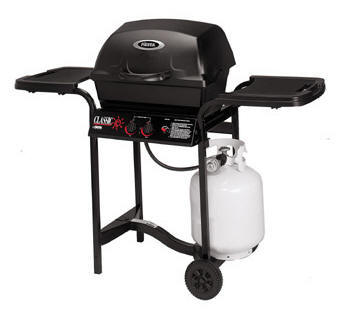

Barbeque Grills & OPD Devices
|
Gas Grills Safety |
|
Many
injuries are caused each year when gas grills are improperly
used and consumers take |
As of April 1, 2002 cylinders without OPD's cannot be used.
An OPD (Overfilling Prevention Device) is a safety feature that helps prevent small propane cylinders from being overfilled.

There are limits to how much propane can be put into a cylinder. A properly filled cylinder will have a vapor space left in the top of the cylinder to allow room for expansion of the liquid with a change in atmospheric temperature. An overfilling prevention device is a secondary means of assuring that cylinders are not overfilled.

There are at least two ways to identify OPD equipped cylinders. New cylinder wrappers and/or warning labels will include this information. Second, most cylinders with OPD's have special triangular the letters "OPD" (However, some OPD's were produced before the letters on the valve handles and valve bodies were required so check the wrapper or label or ask your propane refiller to identify the type of valve on your cylinder.
Beginning in October of 1998 all newly manufactured small propane cylinders (capacity of 4 pounds up to 40 pounds) are equipped with an overfilling prevention device.
Contact us
| Call (574) 272-2144 |
| Fax (574) 272-4043 |
| Write: 18355 Auten Rd South Bend, IN 46637 |
| Police-Fire-EMS-Dial 911 |
STAFF
Office Hours
| Monday-Friday 8:00 a.m. to 4:00 p.m. |
|
Evening Information For all Non-emergency information during evening and weekend hours please leave a message with duty shift. Your call will be answered on the next day's regular business hours. |
 attempt to repair the tank
attempt to repair the tank